Ever since the July conspirators took office in August last year, they have withdrawn their cases and convictions in various cases, filed for corruption, the 10-truck arms smuggling and the August 21 terrorist attack of 2004.
The Jamaat-controlled Muhammad Yunus-led interim government, which was formed defying the Constitution and by holding President Mohammed Shahabuddin hostage, has nakedly used the Supreme Court and the Anti-Corruption Commission (ACC) to take the undue benefits, beginning with the release of BNP chief Khaleda Zia, who was serving 10 years in jail for corruption.
Sheikh Hasina reveals Yunus empire, built on ill-gotten money
Classmate questions Tarique Rahman’s income source, slams him for reviving Hawa Bhaban
Election in early February, agree July masterminds during talks in London
Meanwhile, Yunus, BNP and Jamaat have been abusing power to pursue the ACC to file false and fictitious cases against the previous Awami League government, including party chief and five-time Prime Minister Sheikh Hasina, her family members and critics of the government.
These steps have created an ugly precedent of abuse of power and revenge, say legal experts and activists.
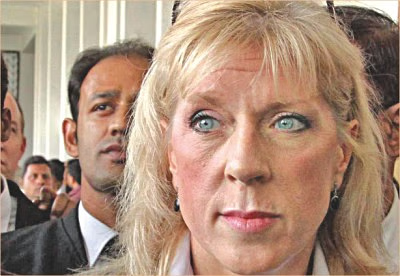
“There is no rule of law in Bangladesh,” said Debra LaPrevotte, former Supervisory Special Agent of the Federal Bureau of Investigation (FBI), international corruption unit, after learning about the acquittal of BNP acting chairman Tarique Rahman and his business partner Giasuddin Al Mamun—the two notorious elements that ran the Hawa Bhaban, an alternative powerhouse during 2001-06.
She thinks the interim government will not be able to fight corruption.
In 2011, she testified against the duo in a money laundering case in Dhaka and produced evidence of illegal transactions of $750,000 (Tk204.13 crore), which Mamun took from a China-linked firm as consultancy fees to award it a power plant project.
His partner, Tarique Rahman, spent Tk37.8 crore from the amount, which was deposited into Mamun’s bank account at City Bank in Singapore.
On October 26, 2009, the ACC filed a case with the Dhaka Cantonment police station after primary investigation that began during the army-backed caretaker government. Both were sentenced to seven-year imprisonment in the case.
While Mamun had to serve his prison terms, Tarique flew to London after securing bail in 2008 and has not returned home.
Since the BNP is a key stakeholder of the interim government and Yunus had a meeting with Tarique last month, it is assumed that the BNP leader would return soon.
The former FBI official predicts that Tarique “may very well be the next Prime Minister if the BNP party wins the next election”.
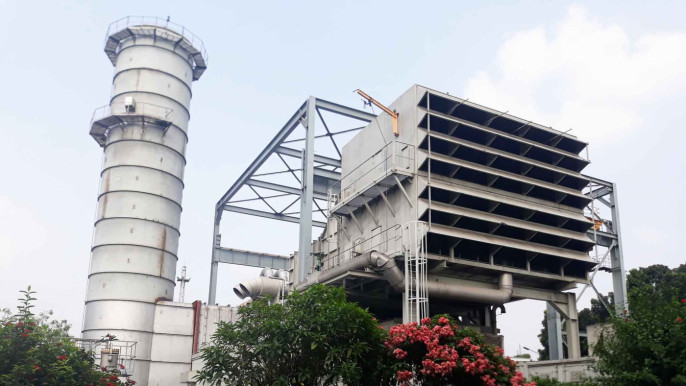
During her illustrious career, Debra created the FBI’s kleptocracy department and went on to recover over $1 billion dollars of dirty money from corrupt leaders.
On December 20, 2005, US Chargé d’Affaires in Dhaka Judith A Chammas termed Tarique the “Dark Prince” to describe that he “has the Zia name, political cunning, and mountains of cash generated by his Hawa Bhaban’s collection of tolls from businesses and BNP political aspirants.
Chammas wrote: “He inspires fear in many people, including BNP backbenchers, self-censoring journalists, business rivals, and parts of the PMO, who see him as ruthless, inexperienced and unworldly.”
A loss project
Nirman Construction, a subsidiary of the Harbin Engineering Company of China, got the 80MW power plant project in Tongi. In return, it paid the bribe between 2003 and 2007.
The plants journey began with embarrassing breakdowns. Then Prime Minister Khaleda Zia inaugurated Tongi Power Plant on September 3, 2005. But it tripped within several hours that day and frequently in the next few months due to technical glitches.
After 20 years, the plant is still there but only to be fed fuel daily to keep it operational.
Former state minister for power Anwarul Kabir Chowdhury said he was against several energy deals with Harbin. He had to step down on October 3, 2006, after he uncovered significant corruption involving Tarique and then state minister for energy AKM Mosharraf Hossain, Chowdhury told a US embassy official, according to documents leaked by WikiLeaks.
He said he had asked an intermediary to convey his allegations to the Prime Minister’s Office. “Unfortunately, the PM’s secretary, Khandaker Shahidul Islam, with whom the intermediary spoke, turned out to be part of the group backing Harbin.” He alerted Tarique to the allegations.
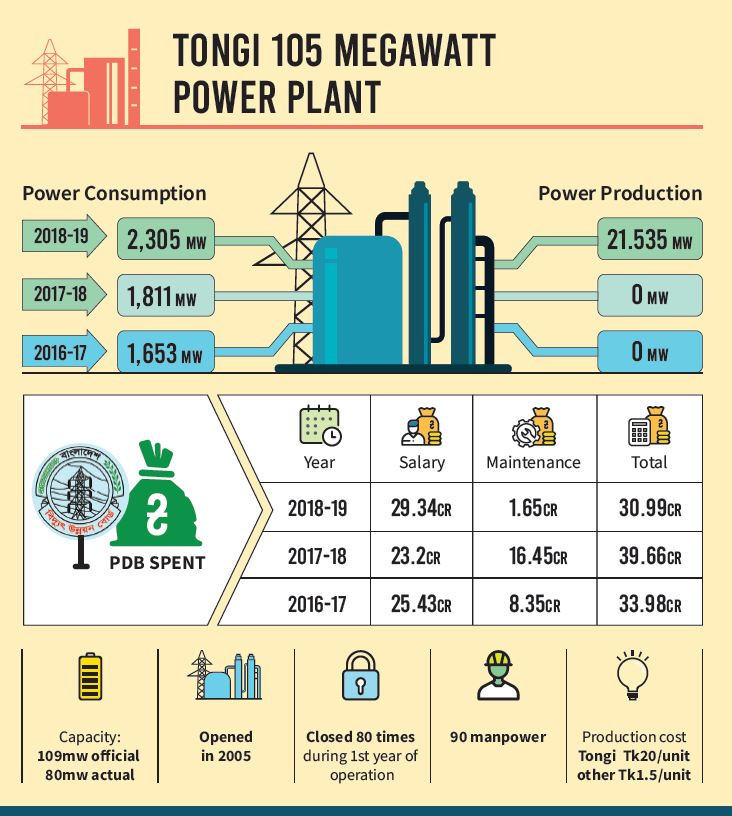
Chowdhury claimed Tarique then instigated the mob attacks on the power offices and facilities around Dhaka, protesting loadshedding to create a pretext for the prime minister to sack him.
The power plant was essentially useless, having shut down more than 75 times in one year since it was commissioned in October 2005.
US concerns
Former US Ambassador James F Moriarty mentioned the corruption in the Tongi power plant project, involving $750,000 paid to Tarique. “One of Tarique’s cronies received the bribe and transported it to Singapore for deposit with Citibank,” Moriarty said in a telegram to the State Department.
In November 2008, Moriarty sought a security advisory opinion under Section 212(F) of the Immigration and Nationality Act, Presidential Proclamation 7750, suspending the entry of Tarique into the US.
Blaming Tarique for dozens of specific allegations, the ambassador said Tarique’s “flagrant corruption” has also seriously threatened specific US Mission goals.
“Embassy Dhaka has three key priorities for Bangladesh: democratization, development, and denial of space to terrorists. Tarique’s audaciously corrupt activities jeopardize all three,” he said.
Moriarty suggested that applying a 212(F) finding to Tarique supports the US’ strong stand against corruption in Bangladesh.
“Embassy recommends that Tarique Rahman be found subject to Presidential Proclamation 7750 for participating in public official corruption as defined by Section 1, Paragraph (c) of the Proclamation,” read the cable.
Hawa Bhaban
During the 1/11 government, detectives arrested many of the BNP top brass, including the prime minister’s sons Tarique and his cronies, took legal action against them and revealed an extensive level of bribery and extortion involving the party, government and the private sector.
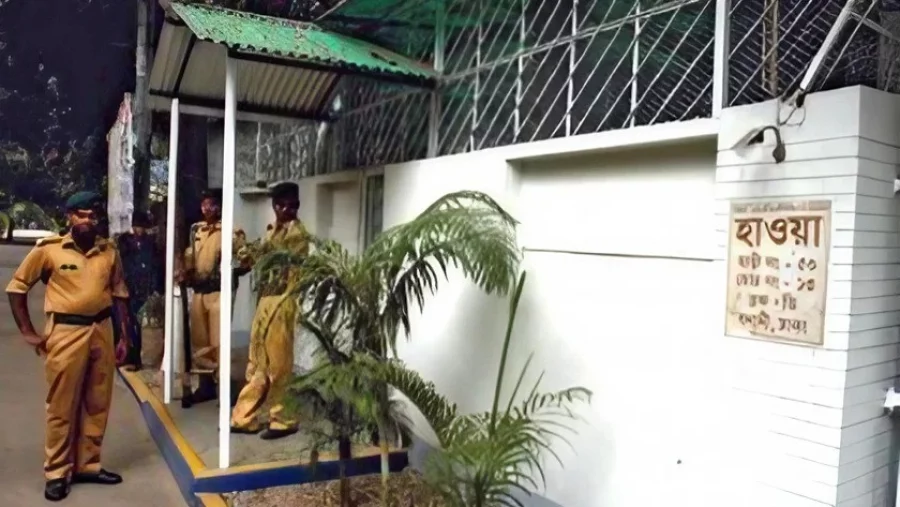
Innumerable journalists were tormented, intimidated and assaulted by state agents and non-state actors on account of their coverage of these issues in the mainstream media.
After nearly 20 years, many high-ranking BNP leaders claim that Tarique and his “Hawa Bhaban” were falsely accused of corruption, money laundering, election engineering and patronage of terrorist operations. They further claimed that Tarique was innocent of any corruption and that the rumours about Hawa Bhaban were made up by the media.
According to the BNP, Hawa Bhaban was the political secretariat of Khaleda Zia, the then-prime minister and party chairperson, on Banani Road 13.
In 2005, for the fifth consecutive year, the non-governmental organisation Transparency International named Bangladesh the world’s most corrupt country.
During the tenure, the World Bank cancelled funding for three development projects, blaming government corruption for its decision.
PMO Principal Secretary Kamal Uddin Siddiqui referred to Tarique as “Wind Tunnel”, a translation of the name of his Hawa Bhaban office. “Wind Tunnel has some psycho friends” that he listens to because of his lack of experience, Siddiqui said, describing Tarique as “unsophisticated and dangerous”. He was talking to the then US ambassador on March 14, 2005, according to WikiLeaks.
Apart from the corrupt friends, Tarique used to coordinate the activities of terrorist gangs and militant groups, such as Hizb ut-Tahrir, JMB and HuJI-B, to conduct attacks targeting the Awami League leaders and leftist parties in the northern districts.
Throughout 2001-2006, these militant groups were responsible for over 1,100 attacks with grenades, hand bombs and guns, killing over 100 people, including 23 leaders and activists of the Awami League on August 21, 2004.
In mid-2005, the BNP, on the directives of Tarique, was “increasingly preoccupied with preparing for the election and, it seems, doing whatever it can get away with to win,” according to a cable sent to the State Department from Dhaka on June 20, 2005.
Tarique and his Hawa Bhaban office systematically monitored constituency politics and devised nationwide campaign strategies, a US official said in a cable dated December 4, 2006.
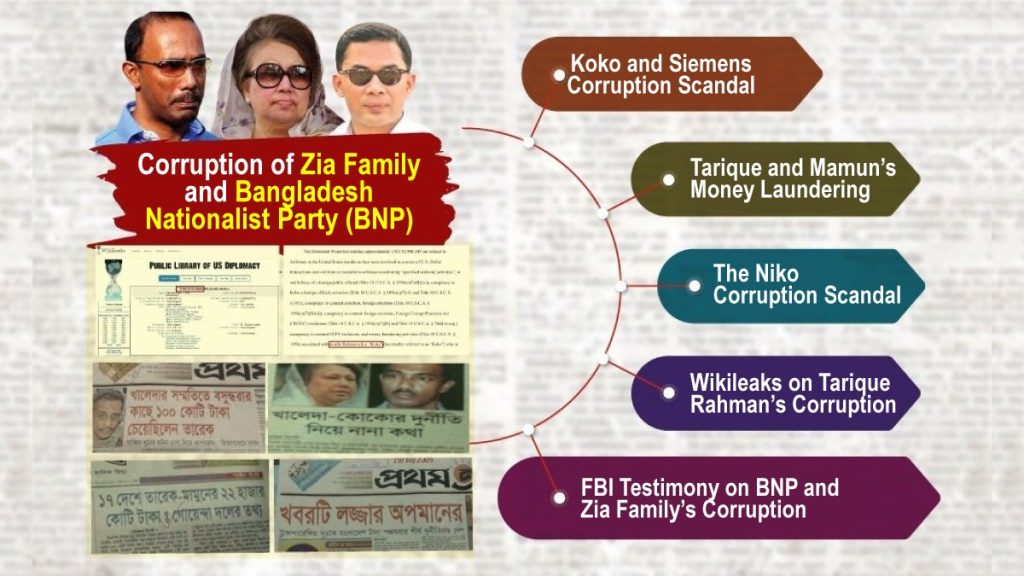
Earlier, he played a key role in forging the breakthrough alliance with the Jamaat-e-Islami and conducting a nationwide survey before the 2001 parliamentary election. And, before the January 22 election of 2007, Tarique had convinced Jatiya Party’s Gen HM Ershad to join the BNP alliance in exchange for the president’s position, according to the US embassy officials.
“By selling state minister portfolios to a suddenly ballooning cabinet in 2002 onwards, Tarique produced a coterie of senior figures who owed him their positions while padding his already ample bank accounts,” US Ambassador Patricia Butenis said.
According to former envoy Moriarty, Tarique’s corrupt activities were not limited to the extortion of local companies like Monem Construction, which paid a bribe worth $450,000 to Tarique to secure contracts.
A witness who funnelled bribes from Siemens to Tarique and his brother Arafat Rahman Koko, the elder brother received a bribe of approximately 2% on all Siemens deals in Bangladesh.
To thwart the prosecution of a murder case against Shafiat Sobhan Sanvir, son of the Bashundhara Group owner, Tarique accepted a Tk2.1 crore ($3.1 million) bribe. Tarique had solicited the payment, promising to clear Sanvir of all charges, Moriarty said, quoting ACC sources.
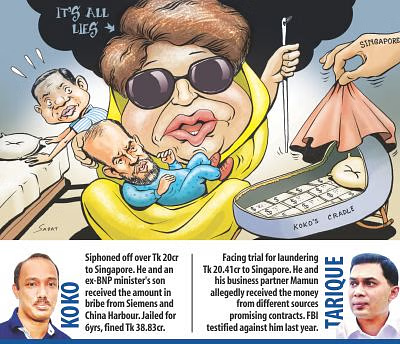
Tarique also succeeded in looting Tk2 crore ($300,000) from the Zia Orphanage Trust Fund account, of which he was a co-signer. He used the funds from the trust for a land purchase in his hometown Bogra and spent money on the 2006 election campaign, said the US envoy.
How did they get acquitted?
The ACC filed the case on October 26, 2009, and pressed charges on July 6 the following year.
On August 8, 2011, the court indicted the duo in the case under the Money Laundering Act 2002 and issued an arrest warrant against Tarique.
After his arrest on March 7, 2007, Tarique flew to London on September 11, 2008.
The trial of this case began on July 6, 2011, and the verdict was delivered on November 17, 2013, sentencing Mamun to seven years in prison and a fine of Tk40 crore. Tarique was acquitted.
On December 5, 2013, the ACC appealed against Tarique’s acquittal. The High Court accepted the appeal on January 19, 2014.
After hearing the ACC’s appeal along with Mamun’s appeal against the prison sentence, on July 21, 2016, the High Court upheld Mamun’s sentence but reduced the fine to Tk20 crore. It also sentenced Tarique to seven years’ imprisonment.
After the August 5 changeover, Mamun filed a leave to appeal (permission to appeal) against the High Court verdict, seeking forgiveness for the delay. The Appellate Division granted this leave to appeal and issued an order on December 10 last year.
There, the High Court verdict was stayed, and a summary of the appeal was also asked to be submitted. Following this, Mamun filed an appeal.
After hearing Mamun’s appeal on March 4, the court set March 6 as the date to announce the verdict.
The four-member Appellate Division, led by Chief Justice Syed Refaat Ahmed, a BNP recruit, declared the High Court’s verdict null and void, paving the way for their acquittal.
The court said there is no truth or substance to the allegations in the case. The important thing is that the law under which the case was filed was not in force at the time. The entire High Court verdict has been quashed.
What did Debra tell the court?
FBI Agent Debra LaPrevotte, who conducted the investigation of corruption at the request of the Bangladesh government, testified that they had traced bribe payments from Nirman Construction Chairman Khadiza Islam’s OCBC Bank account in Singapore to Mamun’s Singapore Citibank account No. 158052-016-008.
That same bank account was used to issue a supplementary Gold Visa Card with No. 4568-8170-1006-4122 in the name of Tarique Rahman. A photocopy of Tarique’s passport (bearing Passport No. Y 0085483, with father’s name late Ziaur Rahman, and mother’s name Khaleda Zia) was submitted to Citibank Singapore during the issuance of the credit card.
Tarique then used the credit card, to which the FBI traced bribe payments, for travels to Greece, Germany, Singapore, Thailand, and the U.A.E.
Others, such as Moazzam Hossain, Mayer Chire, and Marina Zaman, also transferred bribe payments to Tarique via Mamun’s Singapore bank account, to which Tarique had access.
Eventful day in court
When the proceedings began at 11:20am on November 16, 2011, Mamun’s lawyer barrister Fakhrul Islam opposed Debra’s testifying.
He submitted a petition seeking adjournment of the hearing because the witness had not been mentioned in the charge sheet and that additional witnesses could only testify after all witnesses mentioned in the charge sheet had given their depositions.
Opposing the petition, ACC chief counsel Anisul Haq said there was no legal barrier to having testimony from any additional witnesses. He argued that Section 540 of the Criminal Procedure Code (CrPC) says that the court may summon any person as a witness or re-examine any person, even if that person was not summoned before, if his or her evidence is essential to the just decision of the case.
The judge then rejected the defence petition and asked Debra to take the dock. She began her testimony at 12:05pm.
When she stepped up to the dock around noon, there was commotion. Lawyers, including Khandaker Mahbub Hossain and Fakhrul Islam, representing Tarique and Mamun, boycotted the court and left. They brought out a procession on the court premises in protest later on.
After Debra’s testimony, the judge of Special Judge’s Court-3 asked Mamun whether he would like to cross-examine the FBI official to which Mamun shook his head to say no.
Debra Laprevotte stepped off the dock at 1:25pm, and the proceedings ended at 1:35pm.
The testimony
“I’m a supervisory special agent for the Federal Bureau of Investigation,” Debra said, adding: “I’ve been an FBI agent for 16 years. I have a master’s degree in forensic science and advanced training in money-laundering techniques.”
“In my country, I’m considered an expert in international money laundering for testimony purposes,” she said.
“In 2008, the then-interim government of Bangladesh requested the assistance of the United States pursuant to a mutual legal assistance request,” she said.
Because of the request, the United States government sent representatives of the Department of Justice to Dhaka to obtain information regarding the asset recovery cases, she said.
“The US reviewed this request to ensure that it was not politically motivated,” Debra added.
She told the court that she started her investigation with the permission of the US government soon after the representatives of the US Department of Justice had met the ACC.
“As part of my investigation, I discovered several bank accounts in Singapore. Among these accounts, I discovered a bank account in Citibank of Singapore,” she said.
“The account was in the name of Giasuddin Al Mamun.”
The US Department of Justice requested documents regarding the account via mutual legal assistance to Singapore.
“I received the documents for the bank accounts 158052-008 and 158052-016 for the years 2004 and 2005,” she said.
She found two credit cards in the account.
“The first credit card on the account was a Visa credit card in the name of Mr Mamun,” she told the court, adding that the number of Mamun’s Visa credit card was 4568817000064124.
“There was another credit card in the name of Tarique Rahman,” she said, spelling the letters of Tarique’s name out loud from the paper she held. The number of the credit card was 4568817010064122.
Debra then presented a set of documents, comprising 43 pages, before the court as evidence. She later gave the court another set of documents containing 229 pages.
She said that while the US received the account records from Singapore, the Bangladesh government also made a request to Singapore, via mutual legal assistance, for the bank records of the accounts, including that of Mamun.
“In December 2009, I compared the records received from Singapore to those received by the Bangladesh government from Singapore,” she said. “On December 15, 2009, I certified that both copies were identical and signed a letter of certification.”
The US department of justice then sent the documents to the attorney general of Bangladesh via the Bangladeshi embassy in Washington DC, she added.
While reviewing all the bank records, she found a photocopy of Tarique Rahman’s passport, which was submitted to Citibank Singapore to obtain the second credit card on Mamun’s bank account, she told the court.
The number of Tarique’s passport was Y0085483, and Mamun’s was Q0998382, she said.
“It lists Tarique’s father as late President Ziaur Rahman Bir Uttam. And his mother was listed as Begum Khaleda Zia,” she said, spelling each name out loud before the court.
Debra said bank records between 2002 and 2006 show how Tarique Rahman’s credit card was used.
“The charges total $50,613.97, which were used for paying for travel to Athens of Greece, Frankfurt of Germany, Singapore, Bangkok and Dubai, along with shopping and medical expenses,” she said.
The documents from the ACC revealed that a Bangladeshi businesswoman named Khadiza Islam transferred $7,50,000 to Mamun’s account in Singapore, she added.
“These funds were transferred on August 18, 2003. This makes up most of the funds in Mr Mamun’s account at Citibank Singapore, which was used to make payments from Tarique Rahman’s credit card,” she said.
“That is my testimony,” said Debra, as she ended her 75-minute deposition at 1:20pm.
After the testimony, the judge called out to Mamun, who stood on the dock at the back of the courtroom, and asked him whether he could hear the judge’s voice.
“Now I can hear you,” Mamun replied with a smile.
It was then the judge asked him whether he would like to cross-examine the witness. Mamun shook his head.
BNP questions trial
On November 17, BNP leader and former law minister Moudud Ahmed alleged that the government went for US investigator Debra’s testimony as there was no valid witness in the country.
“Under provisions of law, the names of the witnesses should be mentioned in the case details. But her testimony was taken even though her name is not there,” he said at a discussion in Dhaka.
“If a foreign witness can be brought here, why was no chance given to bring foreign lawyers?” Moudud raised a question at the discussion marking Tarique’s 47th birthday.
Khadiza claims money ‘legal’
On August 2, 2012, Khadiza Islam, Chairman of Nirman Construction Ltd, told a Dhaka court that she had given money to Mamun as consultancy fees, and it was not illegal money.
Khadiza said her company, which was selected as the lowest bidder, worked with many international institutions. She appointed businessman Mamun as consultant for speedy work order for the Chinese company, Harbin Power Engineering.
The story of the Tongi power plant began in 2002 when the BNP-Jamaat-Hefazat were in power. The full story was narrated in the High Court verdict.
A tender was invited to install an 80MW-capacity power station in Tongi industrial area.
Nirman International participated in the tender and became the lowest bidder.
The Power Development Board recommended awarding the construction work to Harbin. But the power, energy and mineral resources ministry refrained from acting on the recommendation for eight months.
In such a situation, Khadiza Islam made contact with the PDB high-ups.
Meanwhile, the Harbin Company became annoyed because of the long delay and expressed its desire to take back its bid. They also tried to make contact with State Minister for Power Iqbal Hasan Tuku but failed.
However, Sammi, the private secretary to the minister, asked them to contact Mamun as he had a good relationship with the minister.
Khadiza Islam knew Mamun as they were from the same locality. She contacted him and informed him of the process.
Initially, Mamun was reluctant, but he talked with the persons concerned of the Chinese company and agreed to assist them in getting the work order.
After two weeks, the matter was placed before the committee concerned for approval. The committee approved it in 2003, and an agreement was signed between Harbin and the PDB accordingly.
Then Mamun asked Khadiza, as she told the court, to pay a consultancy fee as Harbin had agreed earlier. Mamun also asked her to make the payment to his bank account in Singapore to avoid further delay and complications.
As per the advice of the Chinese company, she went to Singapore and opened a bank account with the Overseas Chinese Banking Corporation (OCBC Bank).
Harbin transferred $750,000 from China to her bank account and thereafter she transferred the money to Mamun’s bank account with City Bank, Singapore on August 1, 2003.
Some other persons linked with the Chinese company also deposited more money in Mamun’s Singapore bank account.
Later, Mamun transferred in total $2,780,000 from his City Bank Singapore account to his account with Sonali Bank’s Dhaka Cantonment branch. He then siphoned off a part of that money. He was sentenced to seven years in jail for siphoning off around £418,000 to the UK.